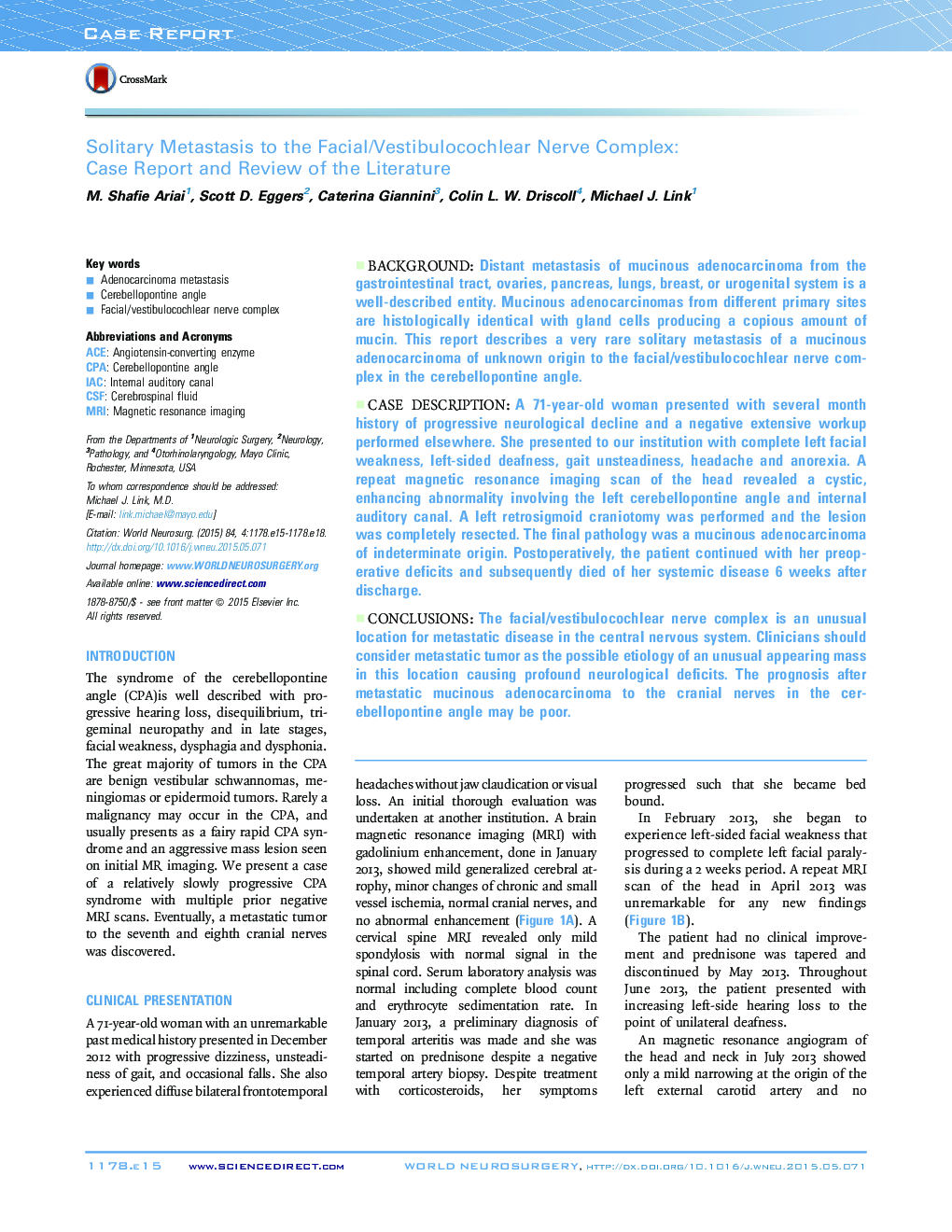| Article ID | Journal | Published Year | Pages | File Type |
|---|---|---|---|---|
| 6044983 | World Neurosurgery | 2015 | 4 Pages |
BackgroundDistant metastasis of mucinous adenocarcinoma from the gastrointestinal tract, ovaries, pancreas, lungs, breast, or urogenital system is a well-described entity. Mucinous adenocarcinomas from different primary sites are histologically identical with gland cells producing a copious amount of mucin. This report describes a very rare solitary metastasis of a mucinous adenocarcinoma of unknown origin to the facial/vestibulocochlear nerve complex in the cerebellopontine angle.Case DescriptionA 71-year-old woman presented with several month history of progressive neurological decline and a negative extensive workup performed elsewhere. She presented to our institution with complete left facial weakness, left-sided deafness, gait unsteadiness, headache and anorexia. A repeat magnetic resonance imaging scan of the head revealed a cystic, enhancing abnormality involving the left cerebellopontine angle and internal auditory canal. A left retrosigmoid craniotomy was performed and the lesion was completely resected. The final pathology was a mucinous adenocarcinoma of indeterminate origin. Postoperatively, the patient continued with her preoperative deficits and subsequently died of her systemic disease 6 weeks after discharge.ConclusionsThe facial/vestibulocochlear nerve complex is an unusual location for metastatic disease in the central nervous system. Clinicians should consider metastatic tumor as the possible etiology of an unusual appearing mass in this location causing profound neurological deficits. The prognosis after metastatic mucinous adenocarcinoma to the cranial nerves in the cerebellopontine angle may be poor.
